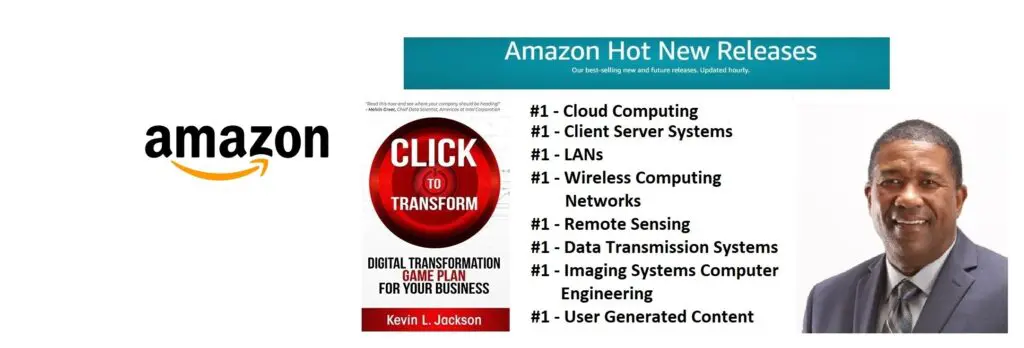Twitter Feed
Review: Executive’s Guide to Cloud Computing by Eric Marks and Bob Lozano
Recently, I had the privilege of reviewing an advance copy of Executive’s Guide to Cloud Computing by Eric Marks and Bob Lozano. Available now for pre-order on Amazon, this guide is a…
DoD Cloud Computing Session at 5th International Cloud Expo
I’m happy to announce that I will be presenting on DoD Cloud Computing Advances at the 5th International Cloud Expo, April 19-21, 2010 at the Javits Convention Center in New…
InformationWeek Prediction: Cloud Computing for Classified Software
Yes, I know you’re sick of all the predictions, but I just can’t resist pointing you to Nick Hoover’s “5 Predictions For Government IT in 2010“. In summary: 1. Cybersecurity…
“Shaping Government Clouds” Just Released
As part of the On The Frontlines series, Trezza Media Group has just released it latest on-line electronic magazine. “Shaping Government Clouds” includes: Pete Tseronis, Chairman of the Federal Cloud…
Fed Tech Bisnow: If Nostradamus Did RFPs?
Nostradamus may no longer be with us, but check out the “beltway” predictions from Tech Bisnow! “Two hot trends almost all mentioned: early uptick on M&A and cloud computing ubiquity”…
Navy CANES and Cloud Computing
During the first quarter of 2010, the Navy is expected to make the first selection for the Consolidated Afloat Network Enterprise System (CANES). CANES is just one component of the…
GovCloud, “Cloud Musings” rated “Influential” by Topsy
Log in with Twitter A search engine powered by tweets My sincere appreciation and thanks goes out to Topsy for rating my tweets as “Influential”! Topsy is a new kind…
Jill Tummler Singer Appointed NRO CIO
Effective January 1, 2010, Jill Tummler Singer will take the reigns as CIO for the National Reconnaissance Office (NRO). As the CIA Deputy CIO, Ms Tummler has been a proponent…
Most Influential Cloud Bloggers for 2009
Thank you Ulitzer and SYS-CON Media for naming me to your list of the most influential cloud computing bloggers for 2009. My hearty congratulations go out to the other bloggers…
2009: The Government Discovers Cloud Computing
2009 was truly a watershed year for Federal information technology professionals. After inaugurating the first Cyber-President we saw the appointment of our first Federal CIO and the rapid adoption of…
4 Factors Driving Digital Transformation ROI
The critical assessment factors for cloud ROI risk probability are the following:
- Infrastructure utilization
- Speed of migration to cloud
- Ability to scale business/mission processes
- Quality delivered by the new cloud-based process
These four factors directly drive digital transformation ROI because they affect revenue, cost, and the time required to realize any investment return. Differences between actual and projected values in these metrics indicate a likely failure to achieve the desired goals.
Although business alignment is always a primary digital transformation drive, ROI remains a key decision component. This metric should, however, be addressed from multiple vantage points to include cloud workload utilization, workload size versus memory/processor distribution and the virtual hardware instance to physical asset ratio.
Value delivered through innovation should also be part of the business value calculation. Value can be delivered through operational cost reductions, optimization of resource capacity, and a reduced total cost of ownership. Business process time reductions, product quality improvements and customer experience enhancements are also useful outcomes.
Security Controls
Business/mission model changes can also introduce operational risk. Acceptance of these risk are based on executive risk tolerance. Their risk mitigation decisions result in the implementation of security controls. A control will restrict a list of possible actions down to what is allowed or permitted by the organization. Encryption, for example, can be used to restrict the unauthorized use of data.
The security control continuum extends over three categories:
- Management (administrative) controls: policies, standards, processes, procedures, and guidelines set by corporate administrative entities (i.e., executive to mid-level management)
- Operational (and physical) controls: operational security (execution of policies, standards and process, education, and awareness) and physical security (facility or infrastructure protection)
- Technical (logical) controls: Access controls, identification and authentication, authorization, confidentiality, integrity, availability, and non-repudiation
They also encompass the following types:
- Directive controls: often referred to as administrative controls, advise employees of the behavior expected of them during their interfaces with or use of information systems
- Preventive controls: include physical, administrative, and technical measures that preclude actions that violate policy or increase the risk to system resources
- Deterrent controls: use warnings and a description of related consequences to prevent security violations
- Compensating controls: Also called an alternative control, a mechanism that is put in place to address security requirements deemed impractical to implement
- Detective controls: Refer to the use of practices, processes, and tools that identify and possibly react to security violations
- Corrective controls: involves physical, administrative, and technical measures designed to react to a security-related incident in order to minimize the opportunity for an unwanted event to reoccur
- Recovery controls: restore the system or operation to a normal operating state once integrity or availability is compromised
The costs associated with the implementation of any security control should be weighed against the value gained from digital transformation business/mission process improvements.
Would you like to learn more about digital transformation innovation? Pick up a copy of my new book, Click to Transform!Â

Cloud Computing
- CPUcoin Expands CPU/GPU Power Sharing with Cudo Ventures Enterprise Network Partnership
- CPUcoin Expands CPU/GPU Power Sharing with Cudo Ventures Enterprise Network Partnership
- Route1 Announces Q2 2019 Financial Results
- CPUcoin Expands CPU/GPU Power Sharing with Cudo Ventures Enterprise Network Partnership
- ChannelAdvisor to Present at the D.A. Davidson 18th Annual Technology Conference
Cybersecurity
- Route1 Announces Q2 2019 Financial Results
- FIRST US BANCSHARES, INC. DECLARES CASH DIVIDEND
- Business Continuity Management Planning Solution Market is Expected to Grow ~ US$ 1.6 Bn by the end of 2029 - PMR
- Atos delivers Quantum-Learning-as-a-Service to Xofia to enable artificial intelligence solutions
- New Ares IoT Botnet discovered on Android OS based Set-Top Boxes
